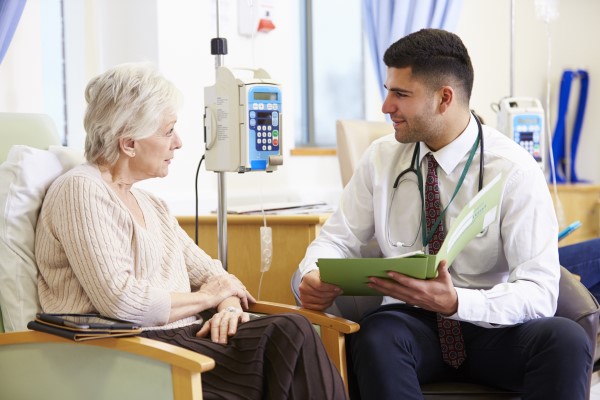Cancer Treatment: Radiation Therapy Versus Chemotherapy

Cancer can be an ugly disease and take its toll on anyone’s body. If your oncologist recently gave you a diagnosis, you want to know what your outlook is and how you can conquer the illness. Some forms of the disease are worse than others, but in most situations, treatments are available. Radiation therapy and chemotherapy are two of the most common ways to combat the condition. Each has benefits and challenges. Your oncologist will discuss with you which one makes the most sense in your situation.
First steps to therapy
After an oncologist diagnoses a patient with cancer, there will be an initial meeting to discuss the next steps. The doctor will explain the treatment options and which one is likely to have a positive result. The oncologist will consider the type of cancer, what parts of the body are affected and how serious it is. How much the disease has spread will also help determine whether the oncologist uses radiation or chemotherapy going forward.
What is radiation therapy?
With this therapy, the oncologist will use a high dose of radiation to shrink tumors and kill the cancer cells. When the cells die, they will free the person from the disease. Radiation either comes in the form of an external beam that aims at the specific part of the body with the disease. There is also an internal variety of the treatment.
What is chemotherapy?
With chemotherapy, the doctor will use powerful drugs and chemicals to kill the cancer cells as the disease spreads through the body. The treatment usually comes in multiple stages over several weeks. The therapy can also ease the pain that comes from the effects of the disease. It is given orally, through the bloodstream or via injection to the muscle.
Differences and similarities
Sometimes, the oncologist will use the two treatments together. While chemotherapy aims to keep the disease from spreading, radiation focuses on particular cells. Chemotherapy can also affect the entire body, while radiation repairs only the affected cells. Both treatments can cause side effects, including hair loss, nausea and fatigue.
Which to choose for cancer treatment
The oncologist will decide which treatment is most effective for the patient. If the disease is spreading rapidly, chemotherapy will be the most likely approach. Radiation therapy may make more sense for particular types of cancer that are affecting smaller areas. Patients react differently to the treatments. If the patient has an adverse reaction to one, the oncologist may try the other therapy.
Discuss your needs today
You may feel scared or nervous about your recent diagnosis. However, your oncologist can help you get the right treatment and feel more at ease. Radiation and chemotherapy both produce side effects. However, each can be effective at eliminating the cancer from your body. Make an appointment with your oncologist today so you can start the process of revitalizing your health.
Request an appointment here: https://lindenbergcancer.com or call Lindenberg Cancer & Hematology Center at (856) 475-0876 for an appointment in our Marlton office.
Check out what others are saying about our services on Yelp: Read our Yelp reviews.
Recent Posts
At a dedicated cancer treatment center, individuals can find hope in specialized medical care that can improve their overall health and treatment outcomes. These centers provide advanced therapies to improve health and quality of life while also offering compassionate support for patients and their families as they navigate through a scary time in their lives.…
Gynecological cancer treatment is a complex and often emotionally challenging journey. Patients and their families frequently have questions and concerns about available options, potential side effects, and long-term outcomes. The following guide provides answers to some of the most common questions about gynecological cancer and what you can expect from the treatment process.According to Johns…
Navigating the effects of gastrointestinal cancer treatment involves more than managing the disease itself. Patients often encounter a wide range of physical and emotional symptoms that affect daily comfort, appetite, strength, and rest. A proactive approach to symptom management can ease this burden, enhance treatment outcomes, and support a higher quality of life throughout the…
A visit to a cancer doctor often feels overwhelming, but understanding what a cancer doctor does and how the first appointment unfolds reduces anxiety and supports confident decisions. A clear idea of what to expect allows patients and families to prepare questions, gather records, and take an active role in care from the very first…


